We are very pleased to announce the latest round of research grants being awarded to WA cystic fibrosis researchers as part of the WA Cystic…
WA Cystic Fibrosis Research Collaborative Program
The WA Cystic Fibrosis Research Collaborative Program is a partnership between the Western Australian Future Health Research and Innovation (FHRI) Fund and Cystic Fibrosis WA (CFWA), in collaboration with Conquer Cystic Fibrosis (CCF).
Funded Research
Project Stream 1: Postgraduate Top-Up Scholarships
Recipient: Sarah Thomas
Institution: University of Western Australia
Year: 2025
Project Title: Too much of a good thing?: A blood test to check and understand the levels of CFTR modulators.
Project Description
Cystic fibrosis (CF) affects roughly 90,000 children and adults worldwide. The recent development of CFTR modulators (CFTRm), a new class of medicines that can be life-changing if not life-saving for many CF patients, has transformed treatment by targeting the underlying cause of CF. However, the responses and side effects to these medications are variable, and interactions with other medicines are common.
Despite being amongst the most costly and groundbreaking treatments for CF, CFTRm are prescribed at the same dose for all patients. This doesn’t account for differences in how patients respond. As a result, some patients are changing the amount of medication they take to avoid unwanted side effects.
This research will develop a blood test in Australia to determine drug levels in patients and will be the first readily available test in Australia. The results will allow doctors to individualise dosing plans, for example a patient may be able to take a lower amount of medicine and still get the same benefit but without unwanted side effects.
The study will also generate important data on drug levels in the blood to guide future recommendations ultimately improving medication adherence and overall patient well-being.
Researcher Profile
Sarah Thomas is a Medical Scientist at PathWest Laboratory Medicine and PhD candidate with University of Western Australia. She has over 15 years of pharmacology and toxicology laboratory experience.
She is involved in design, validation, implementation, troubleshooting and sample analysis for mass spectrometry methods for the detection of a range of analytes in different matrices. She has a passion for improving pharmacokinetic knowledge of new medicines and bridging the gap between laboratory methods and useful clinical applications to improve patient outcomes.
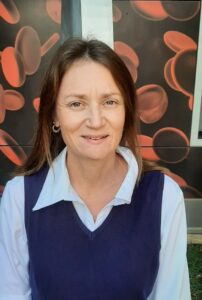
Recipient: Talya Conradie
Institution: The Kids Research Institute Australia (on behalf of the Centre for Child Health Research, on behalf of The University of Western Australia)
Year: 2025
Project Title: New ways to stop lung infections caused by viruses in people with cystic fibrosis.
Project Description
People with cystic fibrosis (CF) are incredibly susceptible to respiratory viruses. Because of the ability of the built-up mucus in the lungs to “capture,” and retain viruses. Children are especially vulnerable to respiratory viruses, which can lead to a worsening lung condition, difficulty breathing, and can potentially be fatal depending on the infection.
While most current treatment strategies are reactive, this project aims to discover different treatment approaches that not only prevent viral infections but also preserve the lung health of children with CF for as long as possible. Azithromycin is an antibiotic that is used in different treatment plans for people with CF. A clinical trial has shown that azithromycin is able to decrease inflammation in the lungs of infants, but how this is achieved is currently unknown.
My project aims to investigate how azithromycin could be influencing the naturally occurring viruses in the lungs to decrease inflammation, and whether this ability could be harnessed to defend against viral respiratory infections. I will also analyse how bacterial communities in the nose of children could hold the key to preventing and predicting infections, opening the door to a new world of research and treatment strategies for people with CF.
Researcher Profile
Talya is a research scientist with a Bachelor of Science and a Master of Systems Medicine from Murdoch University. With a strong passion for understanding how microorganisms influence the respiratory system, she intends to apply her expertise in bioinformatics to improve treatment outcomes in patients. Talya is currently pursuing a PhD at the Wal-yan Respiratory Research Centre at The Kids Research Institute and the University of Western Australia.
Her research focuses on how microbial communities in the lungs affect susceptibility to viruses in children with Cystic Fibrosis, as well as the impact of therapies like azithromycin on the virome and immune system.

Project Stream 2: Research Innovation
Recipient: Dr Maggie Harrigan
Institution: Institute for Respiratory Health
Year: 2025
Project Title: Connected Care: Strengthening Communication and Partnerships in Health for West Australians Living with Cystic Fibrosis.
Project Description
Living with cystic fibrosis (CF) is still complex, even with better treatments. As care evolves, it’s vital for healthcare teams to understand patients’ goals and provide personalised support. But communication between patients, families, and providers is often inconsistent, leading to missed chances to improve wellbeing.
To address this, the Cystic Fibrosis Foundation (CFF) and the Academy of Communication in Healthcare created the Partnership Enhancement Program (PEP) in the US. PEP builds trust, encourages open conversations, and supports shared decision-making. It’s now widely used across US CF centres with great success.
Australians with CF deserve the same. In a first-of-its-kind initiative, a team of Australian CF health professionals is working with CFF to adapt PEP for Australia—called PEP-Aus. With input from the CF community, PEP-Aus will reflect Australia’s unique culture, healthcare system, and geography.
PEP-Aus will be piloted across WA hospitals and community CF teams, focusing on accessibility, feasibility, and impact. This initiative will pave the way for national rollout, aiming to improve care and quality of life for all Australians living with CF.
Researcher Profile
Dr Maggie Harrigan is a Lecturer in Social Work and Social Policy at The University of Western Australia and an Honorary Research Fellow at the Institute for Respiratory Health. With more than 18 years of combined clinical and academic experience, including eight years at Sir Charles Gairdner Hospital (Perth), she brings deep expertise and a passionate commitment to improving the lives of people living with Cystic Fibrosis (CF). Her PhD research focused on enhancing psychological and social support for adults with CF. Dr Harrigan co-leads a national multidisciplinary team with Dr Judith Glazner, Paediatric CF Clinical Nurse Consultant at the Royal Children’s Hospital Melbourne. Together, they unite adult and paediatric CF clinicians, researchers, and individuals living with CF from across Australia, driven by a shared mission: to transform CF care through collaboration and innovation.

Recipient: Dr Renee Ng
Institution: The Kids Research Institute Australia, on behalf of the Centre for Child Health Research, University of Western Australia
Year: 2025
Project Title: Removing the invisibility cloak of the germs with the right phage combination
Project Description
Antibiotic-resistant bacteria are becoming harder to treat, posing a serious global health threat. In Australia, the risk is especially high due to heavy antibiotic use—particularly among vulnerable groups like people with cystic fibrosis (CF). Some bacteria have developed a way to hide from the immune system by using our own antibodies as an “invisibility cloak.” These cloaking antibodies (cAbs), found in 30–40% of people with CF, are linked to poorer health outcomes. To tackle these superbugs, scientists are exploring bacteriophages-viruses that naturally kill bacteria. However, cAbs may also shield bacteria from these bacteriophages, reducing their effectiveness. This project is the first to study how bacteriophages interact with cloaked bacteria and aims to identify bacteriophage combinations that can bypass the cloaking effect. The goal is to develop a safe, effective therapy that shortens hospital stays, saves lives, and lowers healthcare costs. It could also spark new opportunities for biotech and pharmaceutical innovation in Western Australia.
Researcher Profile
Dr Renee Ng is a WA Early Career Child Health Research Fellow based at The Kids Research Institute Australia, with a strong focus on innovative research in phage therapy and infectious diseases. She has led the development of the Phage WA Manufacturing Facility to produce medical grade therapies for individuals. Renee’s commitment to research excellence and her collaborative approach have contributed to high-impact projects. In this project, she will work with groups across the health campuses in Western Australia and Queensland to improve the efficacy of phage therapy. Her ability to translate complex data into actionable insights supports meaningful advancements in public health and she continues to explore novel strategies that enhance disease prevention, foster innovation and improve community health through evidence-based research.

Recipient: Dr Sunaina Parsons
Institution: Institute for Respiratory Health
Year: 2025
Project Title: Tracking Heart and Health Risks in People with Cystic Fibrosis
Project Description
In recent years, treatment for people with Cystic Fibrosis (CF) has improved thanks to new medications that fix the root cause of the disease. These treatments have helped patients live longer with better lung function. However, as people with CF live longer with medications they take, they face new health problems- like heart and metabolic (cardiometabolic) disease. This is because other health issues common in CF, such as diabetes, kidney problems, the need for high-salt diets and long-term inflammation can increase the risk of metabolic and heart related conditions. Cardiometabolic health refers to the overall wellbeing of both the cardiovascular and metabolic systems, meaning how well the heart, blood vessels and metabolic processes (such as blood sugar and blood pressure regulation and fat metabolism) are functioning. It’s hard to accurately measure heart and metabolic disease risk in people with CF because they have unique health backgrounds, including years or prescriptive diets and chronic illness. This project aims to use new and novel approaches to study metabolic and heart health in adult CF patients and track their risk of developing related disease. The goal is to use this information to create new ways to reduce heart disease risk through lifestyle or medical treatment.
Researcher Profile
Dr Sunaina Parsons is an experienced clinician researcher specialising in respiratory and cardiovascular medicine. She currently works as a consultant physician with the adult cystic fibrosis (CF) service at Sir Charles Gairdner Hospital. Sunaina completed both her consultant training and advanced doctorate in cardiovascular disease in the UK. She has authored research papers in lung health and cardiovascular diseases, and actively contributes to the scientific community as a reviewer for high-impact journals. Sunaina’s current research focuses on identifying early cardiac risk in individuals with CF and exploring preventative strategies to enhance longevity and quality of life.
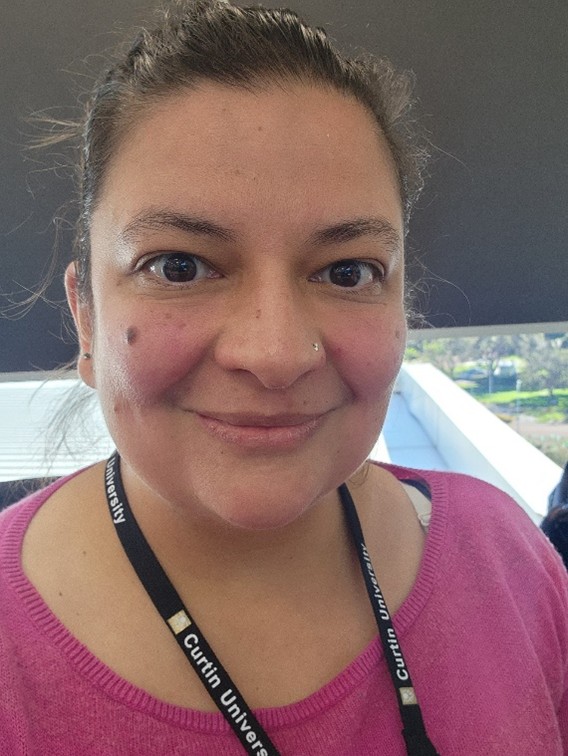
Recipient: Emeritus Professor George Yeoh
Institution: The Harry Perkins Institute of Medical Research
Year: 2025
Project Title: Development of a blood test to determine liver disease severity in people with cystic fibrosis
Project Description
Thanks to medical advances, people with cystic fibrosis (CF) are living longer. But with longer life comes a higher risk of liver disease. When the liver is damaged by drugs, alcohol or infection, liver stem cells increase in number to help repair it. Our earlier research shows this also happens in children with CF. Detecting liver damage often requires a biopsy, a painful and invasive procedure, especially for children. Our research is exploring a safer, easier alternative: using blood tests to measure special signals (called biomarkers) released by stem cells when the liver is damaged. This could help doctors spot early signs of liver disease, monitor its progress, and check how well treatments are working, without needing repeated biopsies. Our early results are promising. Next, we’ll test this method with more patients and look for additional biomarkers to make the test even more accurate. If successful, this could change how we care for children with CF, improving early detection, treatment, and quality of life, here in Western Australia and beyond.
Researcher Profile
George Yeoh [BSc (Hons), PhD] received his Doctorate in Biochemistry from the University of Western Australia in 1972. Shortly after he was awarded the CJ Martin Overseas Research Fellow (NH&MRC) and studied at the University of Pennsylvania USA and the Beatson Institute for Cancer Research, Glasgow, Scotland. He filled many roles as Visiting Scientist at prestigious institutes in the USA and in Europe including the NIH, Pasteur Institute and the German Cancer Centre. He received an NHMRC Fellowship and achieved successive renewals to the level of Principal Research Fellow. He was a Professor of Biochemistry & Molecular Biology and an Emeritus Professor of The University of Western Australia.
He has extensively researched liver progenitor stem cells (LPSCs). LPSCs are induced in rodents with fatty liver that damages hepatocytes. His laboratory showed LPSCs are bipotential; able to generate hepatocytes or bile duct cells. It was first to report LPSCs in a rat model of alcoholic liver disease and in cytomegalovirus-induced hepatitis in mice. It also demonstrated LPSCs in human liver diseases, namely, alcoholic-associated liver disease, hemochromatosis, and HCV. These findings suggest LPSCs play an important role in liver repair.
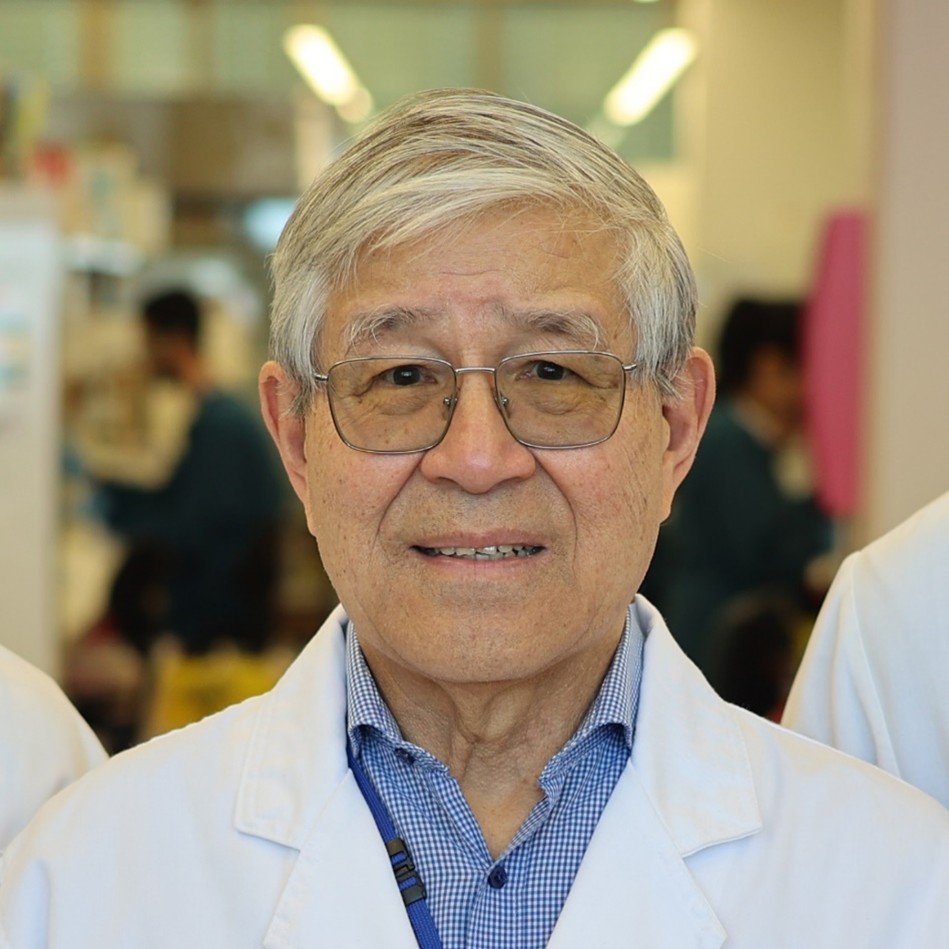
Project Stream 3: Fellowships
Recipient: Associate Professor Anthony Kicic
Institution: The Kids Research Institute Australia, on behalf of the Centre for Child Health Research, University of Western Australia
Year: 2025
Project Title: Developing a precision approach to phage therapy in Australia.
Project Description
Disease causing germs are adapting to our use of antibiotics, making them harder to treat. Known as antimicrobial resistance (AMR), this is predicted to cause more than 10 million deaths annually by 2050. Australia is particularly at risk due to our high use of antibiotics in vulnerable populations, including those with chronic lung diseases, such as Cystic Fibrosis (CF). With no new antibiotics currently being developed, alternative solutions are urgently needed. We are currently exploring bacteriophages, or “phages”, and developing then into safe and effective medicines. Phages are naturally occurring viruses that target and kill bacteria.
Currently, there is no gold-standard production pipeline to produce medicinal phage, so this project will establish a Good Manufacturing Practice (GMP) grade pipeline that carefully monitors the phage, guaranteeing product quality and safety. We will validate our data-driven quality control processes and effectively monitor phages as they are produced, so that they meet GMP criteria. Findings will be shared with the Therapeutic Goods Administration (TGA) to help integrate phage therapy into the health system. Our goal is to provide an effective, safe treatment option that will shorten hospital stays, save lives as well as reduce the healthcare burden associated with severe AMR infections.
Researcher Profile
Disease causing germs are adapting to our use of antibiotics, making them harder to treat. Known as antimicrobial resistance (AMR), this is predicted to cause more than 10 million deaths annually by 2050. Australia is particularly at risk due to our high use of antibiotics in vulnerable populations, including those with chronic lung diseases, such as Cystic Fibrosis (CF). With no new antibiotics currently being developed, alternative solutions are urgently needed. We are currently exploring bacteriophages, or “phages”, and developing then into safe and effective medicines. Phages are naturally occurring viruses that target and kill bacteria.
Currently, there is no gold-standard production pipeline to produce medicinal phage, so this project will establish a Good Manufacturing Practice (GMP) grade pipeline that carefully monitors the phage, guaranteeing product quality and safety. We will validate our data-driven quality control processes and effectively monitor phages as they are produced, so that they meet GMP criteria. Findings will be shared with the Therapeutic Goods Administration (TGA) to help integrate phage therapy into the health system. Our goal is to provide an effective, safe treatment option that will shorten hospital stays, save lives as well as reduce the healthcare burden associated with severe AMR infections.
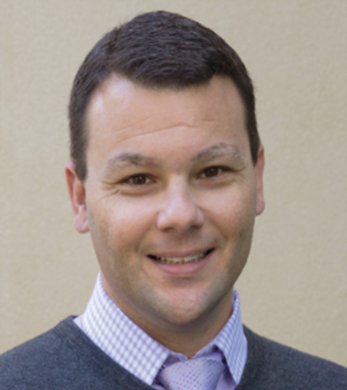
Recipient: Dr Yuliya Karpievitch
Institution: The Kids Research Institute Australia on behalf of the Centre for Child Health Research, University of Western Australia
Year: 2025
Project Title: PhageBnB: Finding the right phage to treat cystic fibrosis lung infections anywhere in the world.
Project Description
Bacterial lung infections remain the leading cause of respiratory health decline and disease burden in cystic fibrosis(CF). While infections are traditionally treated with antibiotics, we are rapidly approaching the era of antibiotic failure due to resistance, a major source of fear and anxiety highlighted by our CF consumers. My project aims to restore hope in the future of CF lung health, by developing the necessary tools to support the introduction of phage therapy into routine clinical management. Bacteriophages (phages) are small viruses that only kill bacteria and can be used to safely and effectively treat CF lung infections, even in cases where antibiotics have failed. Unlike antibiotics, the right phage needs to be closely matched to the right bacteria, and this process can take weeks in a laboratory. I will develop an artificial intelligence-based solution that will shorten this process to <24 hours, which is essential to prevent permanent lung damage from delayed treatment. I will incorporate this technology into an online platform called “PhageBnB”- an “Airbnb” for phages. PhageBnB will provide a global network connecting phage providers so that WA-based phages can treat infections.
Researcher Profile
Dr Yuliya Karpievitch is an Artificial Intelligence and data science specialist working at the forefront of biotechnology and antimicrobial innovation. With a background in computational biology, machine learning, and systems-level data analysis, she develops AI-driven platforms to address critical challenges in infectious diseases, including the growing threat of antimicrobial resistance. Her current focus is on developing precision-matching technologies to accelerate the identification of next-generation phage therapeutics, with a particular emphasis on improving outcomes for vulnerable populations – including children, individuals with cystic fibrosis, and those with chronic or treatment-resistant bacterial infections.
Yuliya’s work bridges the gap between advanced analytics and clinical need, with a commitment to translating complex biological data into actionable insights for personalised treatment. She has held leadership and research roles across academia and industry, contributing to scalable digital infrastructure for phage therapy and equitable access to innovative care. Her interdisciplinary approach integrates clinical microbiology, bioinformatics, and AI to deliver impactful urgently-needed solutions.
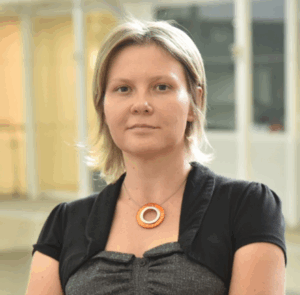
Project Stream 4: Collaborative Grants
Recipient: Dr Kak-Ming Ling, in collaboration with Assistant Professor and Infectious Diseases Specialist Dr Dhammika Leshan Wannigama and Professor Hiroshi Hamamoto from Yamagata University, Japan
Institution: The Kids Research Institute Australia, on behalf of the Centre for Child Health Research, University of Western Australia
Year: 2025
Project Title: Fighting Rare Lung Infections in Cystic Fibrosis with a Promising New Antibiotic
Project Description
People with cystic fibrosis (CF) often face serious lung infections caused by non-tuberculous mycobacteria (NTM). These bacteria are tough to treat because they are resistant to antibiotics and form sticky biofilms that protect them inside the lungs. Present treatments are long, harsh, and often fail, leading to repeated infections.
The current project explores a promising new antibiotic, Lysocin E, which targets the bacteria’s energy system in a unique way. Our goals are to: (1) Study how NTM from CF patients respond to antibiotics and form biofilms; (2) Test how well Lysocin E kills these bacteria and breaks down biofilms in lab models; (3) Understand how Lysocin E affects bacterial genes.
This project is a collaboration with Assistant Professor and Infectious Diseases Specialist Dr Dhammika Leshan Wannigama and Professor Hiroshi Hamamoto from Yamagata University, Japan. Professor Hamamoto, who originally discovered Lysocin E, will provide the compound for the study. This partnership is expected to enhance research capability and foster international knowledge exchange Ultimately, we aim to develop safer, more effective treatments for NTM infections—potentially improving outcomes and quality of life for people with CF.
Researcher Profile
Dr Kak-Ming Ling is a Senior Research Officer at The Kids Research Institute Australia. Her research spans airway epithelial biology and bacteriophage therapy, with a focus on cystic fibrosis (CF). Dr Ling has led pioneering studies on phage-host interactions in the dehydrated CF mucus microenvironment. Her work integrates innate immune responses, proteomics, and glycan profiling to uncover structural variations in mucins that might influence phage binding and therapeutic efficacy. She works as part of the Phage WA team in developing GMP-compliant workflows for phage production and purification. Her long-term research goal is to advance precision medicine and contribute to the development of safer, more effective treatments for chronic respiratory infections.

Postgraduate Top-Up Scholarships
CFWA funds postgraduate top-up scholarships, to encourage researchers to pursue and maintain CF related careers.
Funded Research
2020-2024
Scholar: Danni Li
Funder: CFWA Golf Classic
Year: 2024
Project Description: Danni is researching the use of Trikafta in pregnancy and breastfeeding. Danni’s work is in an area of increasing importance to people with CF and their families.
Scholar: Jack Canning
Institution: The Kids Research Institute Australia, Western Australia
Funder: CFWA Golf Classic
Year: 2023
Project Description: Jack’s research investigates the use of bacteriophages to treat rare and challenging CF lung infections caused by the bacteria Burkholderia cepacia.
Scholar: Rohan Flint
Institution: Curtin University/The Kids Research Institute Australia, Western Australia
Funder: CFWA Golf Classic
Year: 2023
Project Description: Rohan’s project explores novel ways of nebulising (aerosolising) bacteriophages and testing their effectiveness against antibiotic-resistant bacteria on human airway cells.
Scholar: Andrew Vaitekenas
Institution: The Kids Research Institute Australia, Western Australia
Funder: CFWA Golf Classic
Year: 2021
Project Description: Andrew’s project aims to understand how Pseudomonas aeruginosa (a key pathogen of CF-related lung infections) becomes resistant to bacteriophage treatment and develop strategies that increase the effectiveness of bacteriophage therapy.
Scholar: Maggie Harrigan
Institution: The University of Western Australia, Western Australia
Funder: CFWA Golf Classic
Year: 2020
Project Description: Self-concept, defined as one’s self-perception, is linked to mental and social wellbeing. Maggie will explore self-concept in adults with CF, particularly in the era of CFTR modulators, which are projected to revolutionize what it means to have CF. Mixed methods research will be used to develop contemporary self-concept knowledge and resources.
Scholar: Joshua Iszatt
Institution: Curtin University, Western Australia
Funder: CFWA Golf Classic
Year: 2020
Project Description: Joshua’s project involves identifying and isolating bacteriophages (from different sources) that can kill Staphylococcus aureus, one of the most antibiotic-resistant bacteria that causes lung infection in people with CF.
2015-2019
Scholar: Renee Ng
Institution: The University of Western Australia, Western Australia
Funder: CFWA Golf Classic
Year: 2019
Project Description: Renee’s project will be the first to compare the effectiveness of isolated bacteriophages against clinical isolates of Pseudomonas from people with CF and conduct preclinical studies to justify downstream clinical trials. It also aims to identify which bacteriophage therapy can kill the bacteria and reduce infection-induced inflammation. Overall, this work will test the feasibility of phage therapy in this setting and develop a screening tool for high-throughput bacteriophage assessment
Scholar: Naomi Chapman
Institution: Curtin University/Sir Charles Gairdner Hospital, Western Australia
Funder: CFWA Golf Classic
Year: 2019
Project Description: Effective airway clearance techniques (ACT) are crucial for managing CF, helping to reduce exacerbations and slow disease progression. This research will evaluate the effectiveness of a promising new device, MetaNeb® on lung function, secretion clearance, and symptoms in adults with CF, both well and hospitalised. It will also assess novel outcome measures for detecting changes post-ACT.
Scholar: Samuel Montgomery
Institution: The Kid Research Institute Australia, Western Australia
Funder: Hardie Foundation Scholarship
Year: 2017
Project Description: CF related lung disease occurring in the first few months is often detectable before the presentation of clinical symptoms. This study aims to determine whether inflammation resulting from cell death in the airway is increased in early lung disease in CF. It also aims to identify differences in specific gene pathways during inflammation resulting from cell death in the CF airway.
Scholar: Kelly Martinovich
Institution: Princess Margaret Hospital, Western Australia
Funder: CFWA Golf Classic
Year: 2017
Project Description: This project aims to develop personalised therapies for rare CF mutations, focusing on antisense oligonucleotides (AOs). AOs can correct faulty gene-to-protein messages and improve CFTR protein function. They can also be tailored to target specific sites in the CF gene based on the mutation’s location and type.
Scholar: Clara Mok
Institution: University of Western Australia/The Kids Institute Australia, Western Australia
Funder: CFWA Golf Classic
Year: 2016
Project Description: This project aims to understand a common phenomenon called trapped air in early CF using Computed tomography (CT). It also explores whether functional Magnetic resonance imaging (MRI), a less invasive technique, can be used to replace CT scans in studying the trapped air and the mechanisms underlying early CF-lung disease progression.
2010-2014
Scholar: Venkataravanamma Puvvadi
Institution: University of Western Australia, Western Australia
Funder: Conquer Cystic Fibrosis
Year: 2014
Project Description: This project studies the impact of acidity of the liquid lining of the airway by comparing children with and without cystic fibrosis; correcting the acidity is shown to normalise the body’s reaction to bacteria.
Scholar: Tim Rosenow
Institution: University of Western Australia, Western Australia
Funder: Lung Distance Runners
Year: 2013
Project Description: This research is focused on developing a novel CT assessment method to quantitate air trapping in the lungs of CF patients.
Scholar: Cindy Branch-Smith
Institution: The Kids Research Institute Australia/Edith Cowan University, Western Australia
Funder: SBA Foundation
Year: 2012
Project Description: Cindy’s project investigates levels of stress, depression and family and relationship
functioning among families of young children with CF and relating these to health in the child.
Scholar: Luke Garratt
Institution: The Kids Research Institute Australia/Edith Cowan University, Western Australia
Funder: McCusker Family Trust
Year: 2011
Project Description: Luke’s project aims to understand the relationship between neutrophil elastase (NE) and lung inflammation in early-life CF. NE is an enzyme that plays a significant role in the inflammatory response, and its overactivity can lead to lung damage. This project will also explore potential treatment options to mitigate this inflammation, ultimately aiming to improve the health outcomes and quality of life for children with CF.”
Innovation Grants
CFWA aims to fund a significant innovation grant annually, as a catalyst for new or novel CF research.
Funded Research
2023
Scholar: Dr Nikhil Awatade
Institution: Hunter Medical Research Institute, Newcastle, NSW
Funder: CFWA Golf Classic Innovation Grant 2023
Year: 2023
Project Description: This project aims to investigate the mechanism of cystic fibrosis (CF)-related liver disease using a novel disease model called organoids, which are generated from patient-specific cells known as induced pluripotent stem cells (iPSCs). This approach not only provides a safer and more effective way to understand the disease but also aids in the design of targeted therapies.
Scholar: Dr Yuliya Karpievitch
Institution: The Kids Research Institute Australia, Western Australia
Funder: CFWA Innovation Grant 2023
Year: 2023
Project Description: This project explores the use of artificial intelligence-in developing personalised bacteriophage ‘cocktails’ tailored to treat antibiotic-resistant infections in patients with CF.
Other CFWA-Funded Research
In addition to postgraduate scholarships and innovation grants, CFWA provides funding for other research endeavours periodically. This may include research fellowships, discrete projects or initiatives to advance research capability.
For more information on our current programs, please contact our Finance and Administration Manager via email (accounts@cfwa.org.au) or on 08 6224 4100.
Funded Projects
2020-2024
Scholar: Chris Malajczuk
Institution: The Kids Research Institute Australia, Western Australia
Funder: CFWA Golf Classic
Year: 2024
Project Description: Antimicrobial resistance is rising and poses a significant threat to global health, especially for people with CF. This project aims to develop PhageTrainer, an artificial intelligence platform to enhance phage therapy, a promising alternative antimicrobial treatment.
Scholar: Julie Depiazzi & Crystal Bourke
Institution: Perth Children Hospital, Western Australia
Funder: Donor Funded Project Grant
Year: 2023
Project Description: This project investigates the health consequences of Tracheobronchomalacia (TBM), a condition where parts of the windpipe or airways are floppier than would be considered normal, in children with CF. This research will help identify the potential long-term impact of TBM and assist in the design of strategies to manage this condition effectively.
Scholar: Dr Luke Garratt
Institution: The University of Western Australia/The Kids Research Institute Australia, Western Australia
Funder: Golf Classic Grant 2021
Year: 2021
Project Description: This project explores the potential of novel nanoparticles in modifying the function and behaviour of a type of immune cells called Neutrophils, which are found to play an important role in CF related airway inflammation and lung diseases. This research paves the way for innovative therapeutic strategies to manage airway inflammation and improve lung health in CF patient.